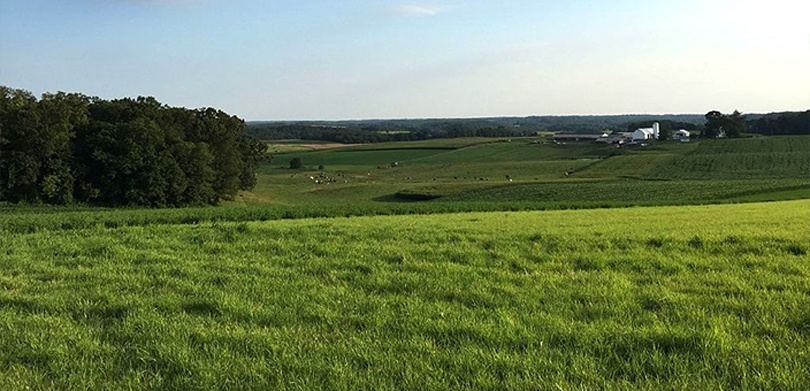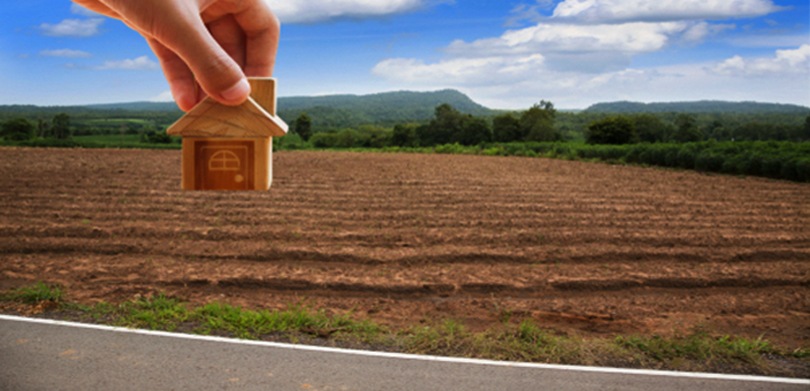Construction of a residential structure is permissible only after the agricultural land is converted for non-agricultural or residential purposes.
As soon as you decide to convert your property, you need to follow specific instructions which are explained in the below points to transform agricultural land for residential purpose.
Page Contents [hide]
How To Convert Agricultural Land To Residential Land

If large agricultural tracts need to be transformed for uses other than farming, the owner may need to seek a higher authority from the planning or tax department.
Different states use different departments to have the authority to convert agricultural land. The departments of a few of the states are provided in the below table.

The Process To Convert Agricultural Land To Residential Land

The process to convert agricultural land to residential land is explained in the following procedure:
Step 1: To get a “change of land use,” permission from the local authorities is required. The Land Revenue Department Commissioner must receive an application which will state the primary reason behind the land conversion.
Step 2: Few required documents are to be submitted and attached to the application letter.
Step 3: Depending on the kind of property and its location, a mandatory fee must be paid when agricultural land is changed to non-agricultural land or residential land.
Step 4: You need to provide information on the land’s size, mortgages, types of crops and soil, the names of the former and current owners, etc.
Step 5: The Tahasildar or Revenue Office can provide certified copies of the documentation stated above. It is necessary to settle all outstanding debts and to include copies of the payment receipts.
Step 6: The Deputy Commissioner or Collector now has the responsibility of approving the conversion of agricultural land to non-agricultural land. Only when the Deputy Commissioner or Collector is satisfied that all requirements have been completed and there are no outstanding debts or legal disputes involving the property will they approve the conversion.
Step 7: According to the land’s master plan, conversion should be allowed. Following that, a conversion order allowing the land’s transfer from agricultural to non-agricultural use will be granted.
Step 8: Farmland is formally changed to non-agricultural land after a Conversion Certificate is received.
Documents Required For Converting Agricultural Land For Residential Purposes

Documents required for the conversion of agricultural land into residential land are the following:
- Proof of identity of the owner.
- Copy of the sale deed.
- RTC (record of rights, tenancy and crops).
- Copy of partition deed (in case the land has been inherited).
- Mutation documents.
- Nil-encumbrance certificate.
- 7/12 extract.
- No-objection certificate (NOC) from the municipal council or gram panchayat.
- Survey map.
- Land utilisation plan.
- Portability of water certificate from a recognised water-testing laboratory (in case of a farmhouse).
- Project report, in case of housing projects.
- Receipt of payment of land revenue
Agricultural Land To Residential Land Conversion Fees

If the land is to be transformed, all obligations and mortgages must be satisfied. The owner has to pay charges as per the state’s law. Different conversion fees in different states are provided in the below table.

Land Conversion Rules

Each State has a unique set of laws controlling real estate. To convert your agricultural property, you must contact either the tax department or the planning authority in your city, depending on the State in which you now reside.
However, one of the common rules is that after submitting all the documents to the authority, they will first verify the documents submitted for the land conversion.
If your agricultural land is owned by many parties, then you have to get approval from every owner regarding the conversion of the land.
FAQs:
| Q1: What documents are required for the land conversion process?
Ans: The documents which are required for the land conversion process are Proof of identity of the owner, Copy of the sale deed, RTC, Copy of partition deed, Mutation documents, etc. |
| Q2: Can I build a house on agricultural land?
Ans: Yes, you can build a house on agricultural land only after converting it into residential land through proper procedure. |
| Q3: What is the requirement for land conversion?
Ans: India’s government enforces severe fines for utilising productive agricultural land for homes and businesses. In order to avoid fines, conversion or land-use conversion is necessary. |
| Q4: How to check the land conversion status?
Ans: It takes 3 to 6 months for the approval process from the authority. You can check the status of your application through the official portal online. |







